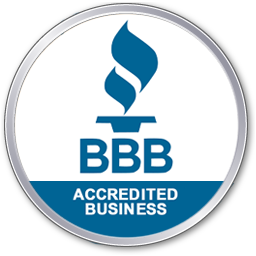You may have heard that asbestos is common in old homes, but do you know which building materials are the culprits?
A naturally occurring mineral, asbestos is made up of millions of tiny fibers that brought both benefits and risks to building products. In fact, it was one of the most frequently used construction materials for both residential and commercial building projects before it was partially banned by the Environmental Protection Agency in 1989. However, local regulations require testing of suspect building materials if a home was constructed in 2004 or earlier.
Why was it so popular? Reasons for widespread asbestos use included:
For these reasons, asbestos was commonly used to make materials for all parts of a home, from the flooring to the roof. Examples of materials that often contained asbestos include:
Unfortunately, the more asbestos was used, the more science began to show its potential risks. While asbestos is not inherently harmful, it can pose a risk to people if it is disturbed and enters breathable air. This typically happens during renovation projects where asbestos-containing materials are altered. It can also happen when these materials degrade over time.
Asbestos-containing materials were also used in commercial buildings, which may still contain asbestos today. The World Health Organization (WHO) estimates that about 125 million people are currently exposed to asbestos in the workplace.
For these reasons, it’s important to know whether asbestos is present in your home or business and where it’s located. Asbestos testing can answer both of these questions. However, only 7% of Americans report that they’ve had their home tested for asbestos, according to a 2021 survey by The Mesothelioma Center. Additionally, one in four Americans admitted they have no idea whether asbestos is present in their home, and a whopping 71% of people simply assume their home doesn’t contain asbestos.
While asbestos can be found in a large number of construction materials, it’s often found in different types of tile. Here, we’ll take a look at the types of tile that may contain asbestos and offer insight on how to know if asbestos tiles may be in your home.
Asbestos ceiling tiles were commonly used up until the mid-1980s. But even if your ceiling tiles don’t contain asbestos themselves, asbestos may be present in the paper backing and adhesive behind your ceiling tile. These materials were popular due to their low cost and fireproof properties.
In commercial settings, asbestos ceiling tiles were often used in schools, warehouses and even hospitals. At home, asbestos ceiling tiles were used nearly everywhere, but they were especially popular in kitchens and basements. Because of their versatility, asbestos tiles could be applied to ceilings of all shapes, including drop ceilings, suspended ceilings and acoustic ceilings.
Although they aren’t technically ceiling tiles, asbestos-containing popcorn ceilings were also popular from the 1950s to the 1980s. A popcorn ceiling is a type of ceiling that has a bumpy texture resembling its namesake, popcorn, or cottage cheese. Popcorn ceilings were known for their sound-deadening properties, as they are better at absorbing sound than other ceiling types.
Unfortunately, you won’t be able to tell if a popcorn ceiling contains asbestos just by looking at it. That’s why it’s best to have your ceiling tested for asbestos before attempting to sand it down or drill holes to install new lights or ceiling fans.
Similarly to ceiling tiles, many floor tiles were manufactured using asbestos from the 1920s to the 1980s. If your home was built prior to 2004, you should have your floors tested prior to removal.
Asbestos can be found in all types of floor tiles, but it was most prevalent in vinyl and asphalt floor tiles. While asbestos testing needs to be used to confirm the presence of asbestos, some visual signs that your floor tiles may contain asbestos include:
Outside of tiles, asbestos was also used in vinyl sheets, laminate flooring and linoleum flooring.
Just like ceiling tiles, your floors may contain asbestos even if the tiles don’t contain it due to the adhesives used to stick them to the ground. Ceramic floor tiles, linoleum floors and other flooring materials were often glued down using an asbestos-containing adhesive known as black mastic. This thick, black adhesive used asbestos fibers to make its application more durable.
For this reason, if you see black glue in between tiles or underneath missing tiles, that can also be a visual sign of asbestos. It’s best to assume black flooring adhesive contains asbestos until a test proves otherwise.
If your floor tiles do contain asbestos but are in good condition (without cracks or deep scratches), then it’s not likely to pose an airborne threat. But if you plan to saw or remove old floor tiles during a renovation, you should get them and their adhesive tested and removed by a professional with experience in asbestos abatement.
While asbestos wall tiles aren’t as widespread as asbestos floor tiles, they were still fairly common until the 1980s. Vinyl wall tiles often contain asbestos because of its fireproof nature, and ceramic wall tiles in bathrooms or kitchens may contain asbestos as well as the glue underneath them. Asbestos can also be found in walls through:
Again, these tiles are not harmful on their own unless they are disturbed. If you’re planning to retile a wall, knock down a wall or cut into a wall for any reason, it’s best to get your wall tiles tested for asbestos.
The roofing industry was one of the most popular sources of asbestos due to the mineral’s heat and fire-suppressing qualities. Asbestos was commonly found in:
Asbestos can even be found in gutters.
Aside from considering whether your roof may have asbestos before a roof repair or replacement, you should also keep in mind the age of your roof and have it regularly inspected for signs of crumbling tiles. The natural degradation of roof tiles can release asbestos into the air, so you’ll want to remove broken tiles as soon as possible to prevent the risk of exposure.
While asbestos roof tiles were often lauded for their long average life expectancy of 30 to 50 years, this doesn’t mean all roofs made of this material will last that long. When it’s time to have your roof replaced, it’s important to enlist the help of experienced asbestos abatement professionals to ensure asbestos roof tiles are removed safely and discarded properly.
Asbestos was a once-common building material used in a variety of applications, including many types of tile within homes and businesses. This is especially true for older buildings.
The only way to know for sure whether your ceiling, wall, floor or roof tiles contain asbestos is to have them tested. The testing and removal of asbestos is best left to professionals due to the inherent risks associated with the material.
The professionals at Alpha Environmental are certified and trained to inspect and remove asbestos tiles and other asbestos-containing materials safely and correctly to offer you a healthier living environment. We’re also well-versed in the strict asbestos abatement requirements set forth for the states of Oregon and Washington by the Occupational Safety and Health Administration (OSHA) and the Department of Environmental Quality (DEQ).
Contact us today at 503-292-5346 for comprehensive asbestos testing and abatement services, or fill out our online form.


